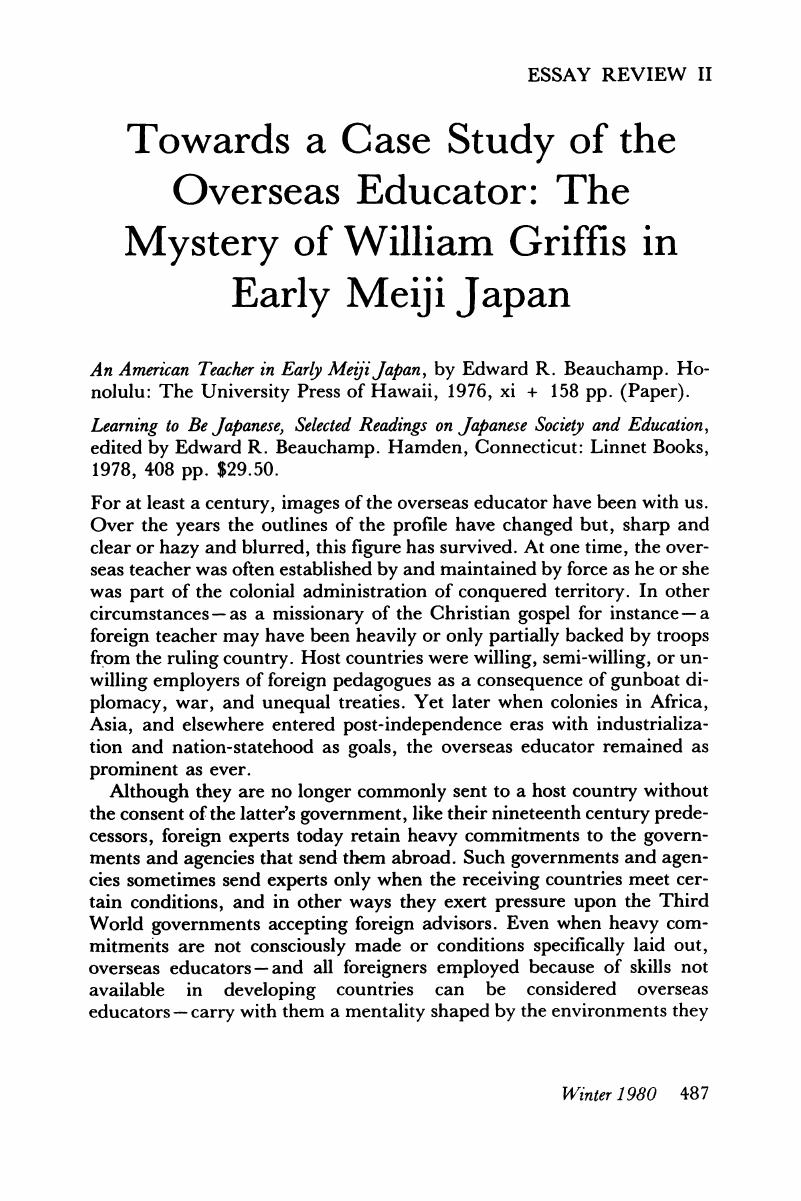No CrossRef data available.
Article contents
Towards a Case Study of the Overseas Educator: The Mystery of William Griffis in Early Meiji Japan
Published online by Cambridge University Press: 24 February 2017
Abstract

- Type
- Essay Review II
- Information
- Copyright
- Copyright © 1981 by History of Education Society
References
Notes
1 Everywhere in the developing world foreign experts have arrived with their national, cultural, and ideological baggage as well as their technical skills. For examples of what this has meant in post-colonial Africa, for instance, see Arrighi, Giovanni and Saul, John S., Essays on the Political Economy of Africa (New York, 1973).Google Scholar
2 Beauchamp, Edward R., An American Teacher in Early Meiji Japan (Honolulu, 1976), p. 1.Google Scholar
3 Ibid., p. 12.Google Scholar
4 Ibid., p. 31.Google Scholar
5 Ibid., p. 74.Google Scholar
6 Ibid., p. 85.Google Scholar
7 Ibid., p. 104.Google Scholar
8 The work of Hazel Jones cited by Beauchamp deals extensively with problems concerning the control of foreign employees and autonomy in hiring and firing them. See for example Jones, Hazel, “The Formulation of Meiji Policy Towards the Employment of Foreigners,” Monumenta Nipponica vol. XXIII (1968), pp. 9–30.Google Scholar
9 Beauchamp, , An American Teacher, p. 93.Google Scholar
10 Ibid., p. 93.Google Scholar
11 Ibid., p. 134.Google Scholar
12 In his own writings about his life in Japan Griffis emerges as a much more interesting and considerably more broad-minded person than he does in An American Teacher in Early Meiji Japan. See in particular Griffis, , The Mikado's Empire (New York, 1913) and Griffis, , The Mikado: Institution and Person; A Study of the Internal Political Forces of Japan (Princeton, 1915).Google Scholar
13 See Winks, Robin W., The Historian as Detective (New York, 1970).Google Scholar
14 Ibid., p. 543.Google Scholar
15 Wilson, Richard W., Learning to be Chinese (Cambridge, Mass., 1968).Google Scholar




